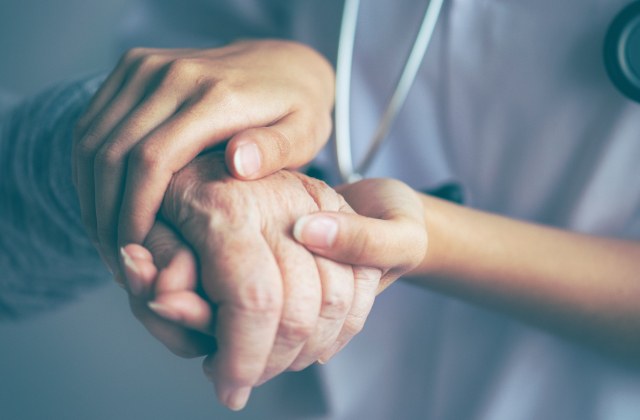What does a massive stroke mean
![]() This article contains medical information that should be reviewed with a doctor before being applied or used.
This article contains medical information that should be reviewed with a doctor before being applied or used.
What is a massive stroke?
When we speak of a “massive stroke,” we are describing a cerebral event that leads to significant neuronal damage.It is important for families, caregivers, and nurses to recognize a stroke in time and provide help as quickly as possible.
Common symptoms of a massive stroke.
The expression is somewhat nebulous and can vary in its interpretation, but it usually conveys one or more of the following conditions:
- Extensive Cerebral Impact: A considerable segment of the brain suffers damage, often due to a major obstruction or rupture in a principal brain artery.
- Intense Symptomatology: The individual may exhibit extreme and acute symptoms, such as considerable loss of muscle control, inability to speak or understand language, and deep-seated cognitive or sensory disruptions.
- Pronounced Neural Damage: Brain scans, such as MRIs or CT scans, reveal widespread damage to brain tissue as a result of the stroke.
- Critical Outlook: The prospects for recovery are often grim, with a significant chance of succumbing to the event or sustaining severe, lifelong impairments.
Categories of Massive Strokes
Massive strokes come in two primary forms— ischemic and hemorrhagic:
- Ischemic Strokes: These occur when a blood vessel that feeds the brain becomes blocked. They are the predominant type of stroke. Massive ischemic strokes typically happen due to obstruction in a substantial artery, like the middle cerebral artery or the internal carotid artery.
- Hemorrhagic Strokes: These strokes transpire when a weakened vessel in the brain bursts. The usual culprits are aneurysms and arteriovenous malformations (AVMs). When it comes to massive hemorrhagic strokes, the consequent cerebral swelling and surging intracranial pressure can cause severe neuronal damage swiftly.

The Toll of a Massive Stroke
The sequelae of a massive stroke can be far-reaching and severe. Those who endure such a stroke might encounter:
- Grave Motor Deficits: Paralysis, often on one side (hemiplegia), or coordination and balance challenges are common.
- Language and Communication Deficits: This may manifest as aphasia, which affects speaking, comprehension, and the abilities to read or write.
- Neurological Impairments: These can include disturbances with memory, concentration, or problem-solving.
- Emotional Complications: Mood disorders such as depression or anxiety, along with behavioral changes, may arise.
- Dependence: Survivors of a massive stroke frequently require extensive, long-term care and may not regain their independence.
Recovering from massive stroke
Addressing a massive stroke involves initial stabilization, acute symptom management, followed by exhaustive rehabilitation. Treatment approaches may encompass:
- For Ischemic Stroke: Use of thrombolytics to dissolve clots, mechanical thrombectomy to physically remove blockages, and other methods to reestablish cerebral circulation.
- For Hemorrhagic Stroke: Surgical procedures to mend or remove compromised vessels or alleviate pressure due to accumulated blood.
The recovery timeline for a massive stroke depends on individual characteristics such as age, lifestyle, and quality of care received. Recovery from a massive stroke necessitates a holistic and interdisciplinary regimen, typically including physical, occupational, speech therapies, and mental health support. Angel Care home care agency propose a wide range of therapies for elderly. Please contact us if you have a question.
The survival rate after a massive stroke can vary widely and is influenced by numerous factors including the type of stroke, the extent of brain damage and rehabilitation services available. While some patients may regain significant function, others may face permanent disabilities. The mortality rate is particularly high in massive hemorrhagic strokes.
Immediate medical intervention is crucial. Recognizing stroke symptoms expediently—embodied by the “FAST” mnemonic (Facial drooping, Arm weakness, Speech difficulties, Time to call emergency services)—can be lifesaving.
Angel Care, Inc., a New York home care agency, has a team of specialists ready to assist individuals recovering from a stroke. If you or your loved one needs help, please contact us by phone at 917-507-7500 or by e-mail at [email protected].

The role of a caregiver is often a manifestation of deep empathy and commitment, commonly perceived as a selfless contribution borne out of love. Yet, beneath the quiet façade of day-to-day care, emotional tumult brews, leading to conditions such as caregiver depression and caregiver anxiety. The psychological toll of caregiving invites crucial discussions about support mechanisms, including caregiver counseling and support groups that offer crucial relief and comprehension. The Psychological Burden of Care Engaging in caregiving can be a profound, albeit exhaustive, shift in someone’s life, altering familiar patterns and personal time. Caregivers, in their steadfast focus on another's health, frequently sideline their well-being, precipitating a downturn in mental health. A prevalent outcome is caregiver depression, marked by an enduring melancholy, a waning interest in life's pleasures, and a heavy sense of despair. Additionally, the relentless demand for attentiveness often leads to caregiver anxiety, with symptoms like continuous worry, disrupted sleep, and an overarching sense of unease. Identifying the Unspoken Struggle Caregivers' mental health concerns may not be immediately apparent. Minor behavioral shifts such as social withdrawal, increased irritability, or appetite changes might suggest underlying struggles. These indicators should be seen as red flags for potential mental health issues, rather than mere signs of stress. The Importance of Caregiver Counseling In light of caregivers' heavy responsibilities, the importance of caregiver counseling is undeniable. This professional guidance provides a safe space for caregivers to voice their concerns, navigate their feelings, and forge strategies to handle their responsibilities. Counseling is pivotal in pinpointing early signs of mental distress and steering towards intervention before a crisis ensues. The Relief Found in Support Groups Caregiver support groups carve out a collective haven for sharing and empathy, away from judgment. They forge a bond of understanding, giving caregivers an opportunity to connect with peers familiar with their experiences. Through the exchange of stories and strategies, caregivers glean new coping mechanisms, learn about resources, and most critically, feel a sense of companionship on their caregiving path. Promoting Resilience and Personal Well-being While external support is vital, cultivating inner resilience is of equal significance. Caregivers should be empowered to indulge in self-care, establish personal limits, and seek out simple pleasures. Personal well-being could include dedicating time to hobbies, mindfulness exercises, or enjoying nature. The aim is to maintain equilibrium, ensuring that caregivers' own needs are met alongside those they care for. Broadening the Perspective Through Advocacy The repercussions of caregiving on mental health warrant a broader perspective, including advocacy and public consciousness. When caregiver health is regarded as a communal priority, everyone stands to gain. Enhancing the visibility of caregivers' psychological challenges can catalyze the development of more robust support networks, lightening their load. To wrap up, the quiet sacrifices of caregivers call for robust and vocal support systems. Recognizing the psychological impact of caregiving underscores the need for effective supports like counseling and group solidarity. Through such support, caregivers can find sustenance to persist in their commendable endeavors without compromising their mental health. Ultimately, preserving caregivers' psychological health is not solely for their benefit; it cultivates a caring society that values the health of those who devote themselves to caring for others. Want to know more about caregiving? Contact Angel Care,Inc.,New York home care agency now to have consultation, rich us by phone at 917-507-7500 or by e-mail at [email protected].

Strokes stand as a primary source of disability among the aged population, profoundly affecting not only those who suffer from them but also their close associates. The range of post-stroke consequences is extensive, influenced by the stroke's locale within the brain, its intensity, and the pre-stroke health condition of the individual. Duration of a Stroke Strokes unfold when the brain's blood supply is either hindered or diminished, depriving brain cells of oxygen and nutrients, leading to their rapid demise. Given its emergency nature, immediate medical intervention is key to curtailing brain injury and subsequent complications. The stroke itself may be brief, spanning a few minutes to hours, yet the resultant effects and symptoms might be enduring, even permanent. Post-Stroke Journey Navigating the aftermath of a stroke is often a formidable and drawn-out process, potentially extending from several months to years, and for some, it becomes a lifelong path. Recovery varies greatly and is contingent on factors like the stroke’s severity, the specific brain region affected, pre-existing health status, and the promptness of initial medical care. When strokes affect the brain's left hemisphere, the impact is notably distinct from that on the right, reflecting each hemisphere's different roles. Strokes on the left side can lead to right-sided body paralysis, challenges with speech and language, and a generally more cautious and deliberate behavioral approach. Post-Stroke Symptoms Post-stroke symptoms might encompass difficulties with speech and comprehension, facial, arm, or leg paralysis or numbness, vision issues, persistent headaches, and mobility challenges. The recovery experience and residual symptoms are highly individualized. Recognizing Mini Strokes in the Aged Mini strokes, or transient ischemic attacks (TIAs), are brief interruptions to the brain's blood supply. They manifest symptoms akin to those of a full stroke but are short-lived, lasting mere minutes or hours. Despite their transitory nature, TIAs are serious warnings of potential full-blown strokes and should not be ignored. Symptoms to be vigilant about include abrupt weakness or numbness, particularly on one side, confusion, speech or comprehension difficulties, and vision problems. Rehabilitation Pathways Stroke recovery generally entails a multidisciplinary rehabilitation regime, potentially including physical therapy, occupational therapy, speech therapy, and psychological counseling. The rehabilitation's objective is to foster as much independence and functional recovery as possible, though it can be a lengthy and demanding process that requires ample determination and support. Concluding Thoughts The elderly face a heightened stroke risk with potentially more drastic repercussions. Comprehending the signs and anticipated post-stroke outcomes, along with securing timely and appropriate care, is vital in alleviating the stroke's long-term effects. Early medical response coupled with thorough rehabilitation is instrumental in maximizing recovery potential. Awareness of stroke risks and indicators is crucial for the elderly and their caregivers, to secure the most favorable prognosis in these critical health occurrences. Skilled nurses from Angel Care, Inc., a New York home care agency, can provide a high quality of care after a stroke. If you or your loved one needs help in recovering from a stroke, please contact us.



